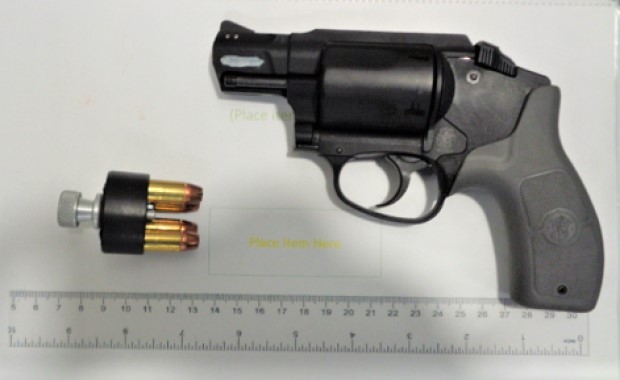A federal lawsuit arguing that adults under the age of 21 should be legally allowed to purchase handguns from federally licensed firearm dealers is now a class action suit after a court ruled that the law prohibiting it violates the Second Amendment.
“The court certified it for the class that’s everybody between the ages of 18 and 21, who is otherwise legally allowed to purchase a firearm in the United States,” said attorney for the plaintiffs Elliott Harding in an interview on Charlottesville Right Now. “So it’s 10 to 14 million people.”
Harding previously filed a similar suit against the Bureau of Alcohol, Tobacco and Firearms (ATF) on behalf of two local plaintiffs including one who was the victim of domestic abuse by an ex-boyfriend. That plaintiff wanted to bring a handgun to her job on a rural horse farm to protect herself.
Those plaintiffs won the case in the Fourth Circuit Court of Appeals, Harding says, but then both parties turned 21 as the case was progressing, rendering their claim moot.
Harding says the new suit was filed on behalf of several students at Hampden-Sydney College in Farmville.
“They wanted to make sure that that issue could remain alive. And so we filed on behalf of them individually in Richmond,” Harding says. “And then just last week or two weeks ago, the court certified our class action. So now we don’t ever have to worry about one person turning 21.”
The suit argues that federal legislation passed in 1968 prohibiting anyone under 21 from purchasing a handgun from a federally licensed firearm dealer is unconstitutional.
“FFLs, as they’re called, are the only source of background checks,” says Harding. “And so if you’re an adult over the age of 18 and otherwise qualified to own and possess a firearm, you actually can’t go buy a handgun in the background check system.”
The government argued there was no Second Amendment violation because adults under 21 are legally permitted to purchase higher capacity firearms including AR15s from federally licensed dealers.
“The court in Richmond this year struck down that law, found that it is unconstitutional,” Harding says.
Other arguments against the suit included ongoing brain development in people under 25.
“I’ll just note, these are all adults that we’re talking about. And one thing that they try to do in the argument is say that we’re arguing for all minors. We’re not arguing for any minors,” Harding said. “
He acknowledges studies showing that violence is predominately committed by people below a certain age range but says that has no bearing on Constitutional rights.
“Our argument has always been that when the state defines that threshold, the age of adulthood, all of your fundamentally liberties vest at that age,” he said.
Harding says it makes no sense that young adults would be permitted to possess handguns and purchase them in private sales. He believes the lawsuit will close a loophole.
“If anything, it sounds backwards to think that you’re relegating people to the unregulated system. Yet here you are trying to do it in the name of safety,” he said. “Why do we even have the regulated system if it somehow makes it safer?”
The government has until Oct. 30 to appeal the ruling, and Harding doesn’t believe the case will end there.
“I’d expect either party to try to petition it to the U.S. Supreme Court,” he said.



